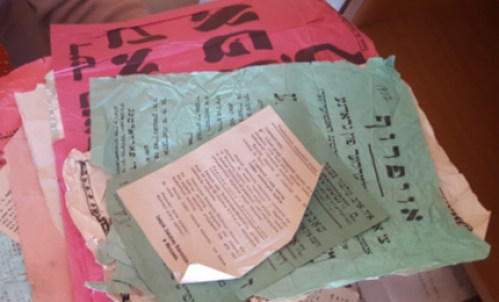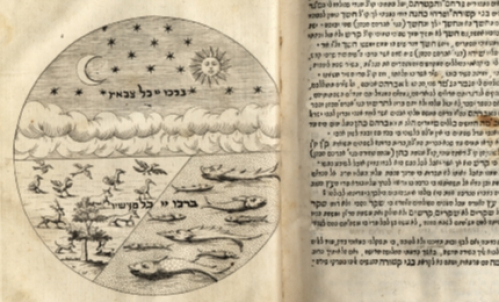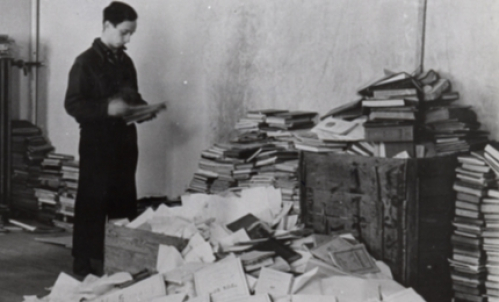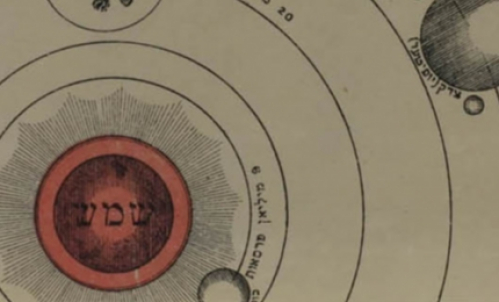Work in Progress at the Lithuanian Central State Archives
by ROBERTA NEWMAN
From time to time in this space we will feature artifacts from the Vilna Collections that have not yet been formally digitized, but which represent work in progress at both YIVO and at the sites of our project partners in Lithuania.
This week, we bring you samples from the documents from the YIVO materials at the Lithuanian Central State Archives (LCVA). Part of this collection was sent temporarily to YIVO in New York in the 1990s, where it underwent conservation and archival processing (organization). These documents are now in the process of being digitized. To date, 56,402 digital images have been created.
But several years ago, several boxes of additional materials were found at the LCVA. These documents are now in the process of being organized by our archivist Lara Lempert, who is also a librarian working on the project to digitize YIVO and Strashun Library books at the Martynas Mažvydas National Library of Lithuania. Lempert, a scholar fluent in several languages, is one of a very few individuals in Vilnius with the expertise to catalog Yiddish and Hebrew books and documents.
Among the materials that Lempert is cataloging are Yiddish terminological cards, the remnant of YIVO’s ongoing linguistic scholarship on Yiddish before the war. Many of the cards shown here record terms relating to work (e.g., upper left, “work processes”;) lower right, “workshop”), but the card at center shtubike bale-khaim, would translate literally as “animals of the house” and possibly means “pets.”
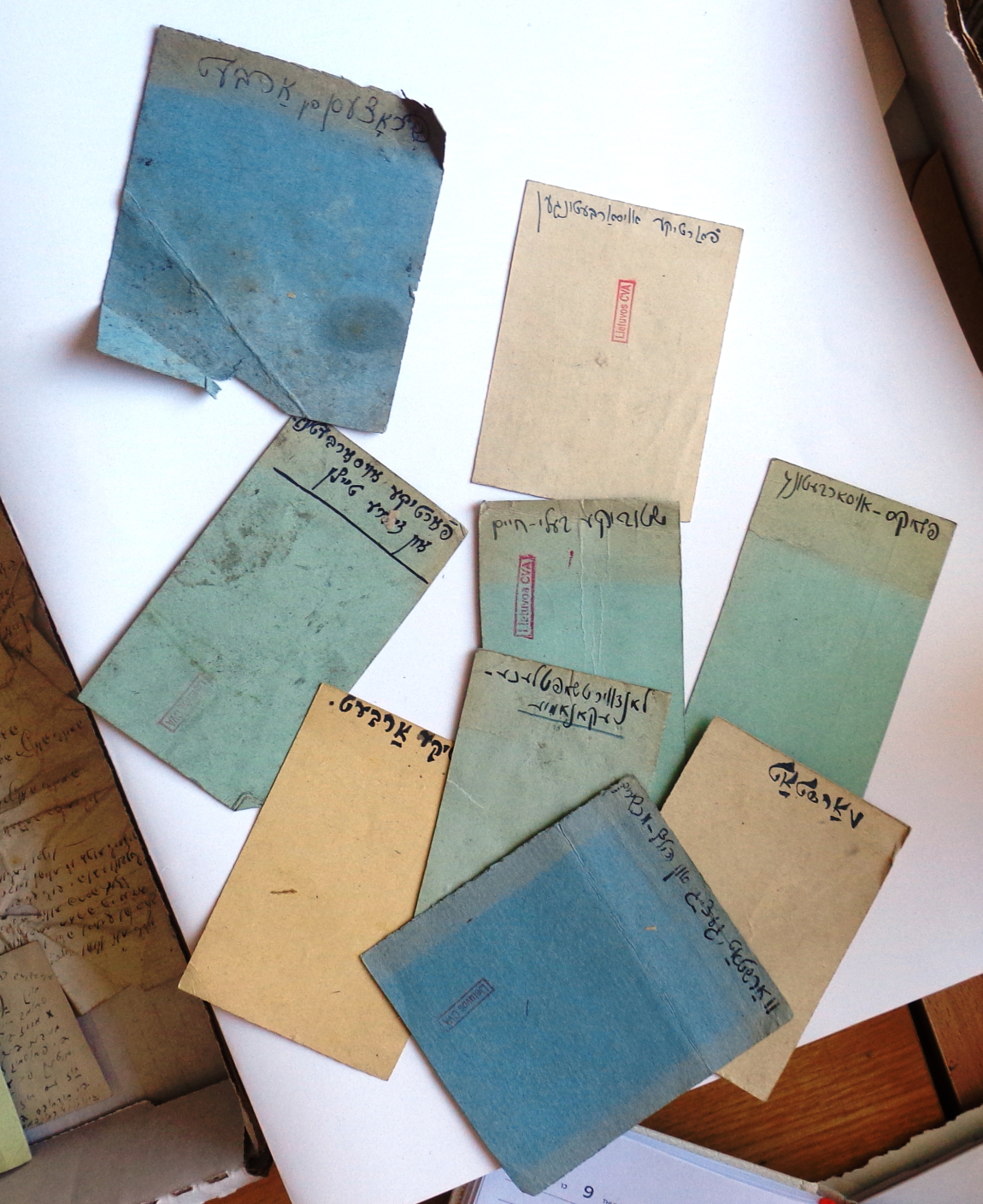
There are occasionally materials that ended up interspersed with these papers that were not in YIVO’s collections before the war, but which date from during the war itself. This message to actress Esther Lipovsky written in the Vilna Ghetto is dated March 30, 1943 and was likely read aloud at a special performance held in her honor of David Pinsky’s “The Treasure” by the Vilna Ghetto Theater.
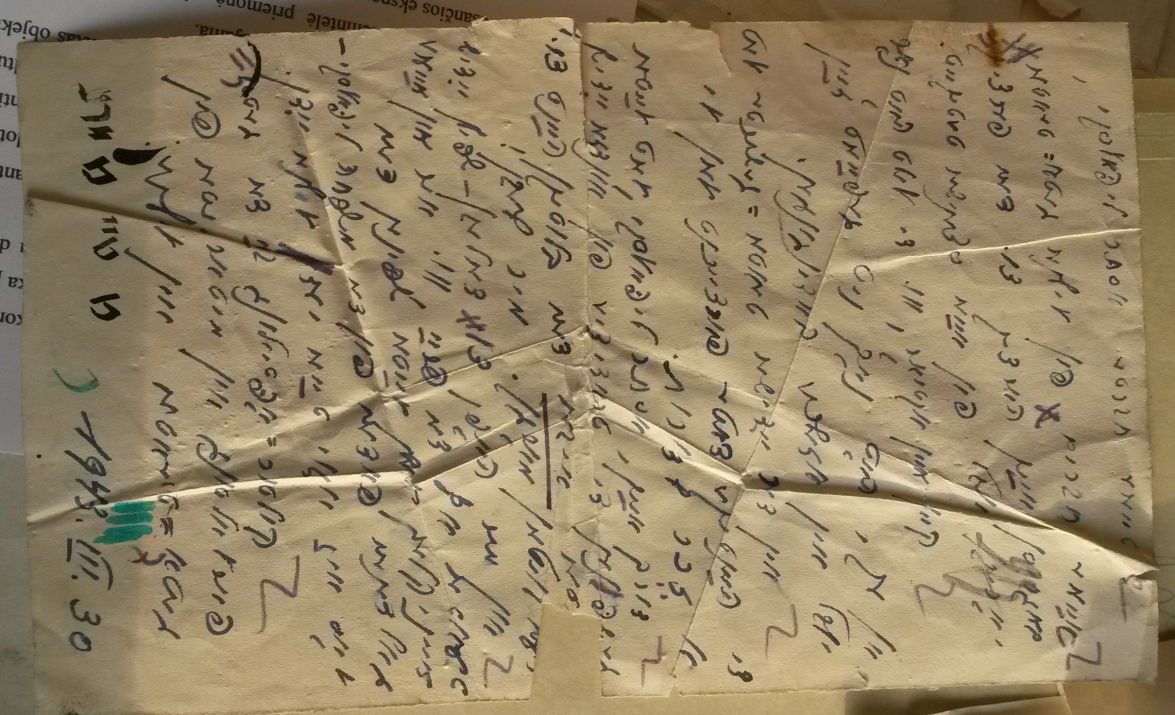
The event is documented in the ghetto diary of Herman Kruk (published in English translation by YIVO and Yale University Press in 2002 as The Last Days of the Jerusalem of Lithuania).
Kruk’s entry for March 26 reads:
“After long rehearsals, the premiere of Pinsky’s “The Treasure” will take place tomorrow in the Ghetto Theater. The tickets are already sold out for the performance tomorrow… The last performance will be a festive one—a benefit in honor of Mrs. Lipowska’s 40-year acting career.”
April 4, 1943:
“After the second act, Ester Lipowska was congratulated by the director Yisroel Segal, and the artists Blacher and Bergolski. The modest celebration, with its moving warmth and in the special circumstances of our Ghetto Theater, made a big impression.”
In the document, the board and staff of the Vilna Ghetto Theater send Lipovsky greetings on the occasion of the 40th anniversary of her career as an actress:
“No other actor in the world has had to celebrate an anniversary under such conditions. This day will go down in Yiddish theater history as a monument to the generations… We live!”
The letter concludes with their wishes that she and her grandchildren will one day, “in freedom, continue to spin the golden thread of the Lipovsky family so precious to every Vilna Jew.”
Lipovsky was the widow of Nahum Lipovsky (1874-1928), director of the Yidish folks-teater (Jewish Peoples' Theater).
The crumpled condition of this letter is not unusual. The great majority of the documents that will be digitized in the course of the YIVO Vilna Collections project are damaged, a testament to the conditions in which they were hidden for decades. This and other damaged materials will undergo conservation (including smoothing and flattening) before digitization.
Roberta Newman is YIVO’s Director of Digital Initiatives.
